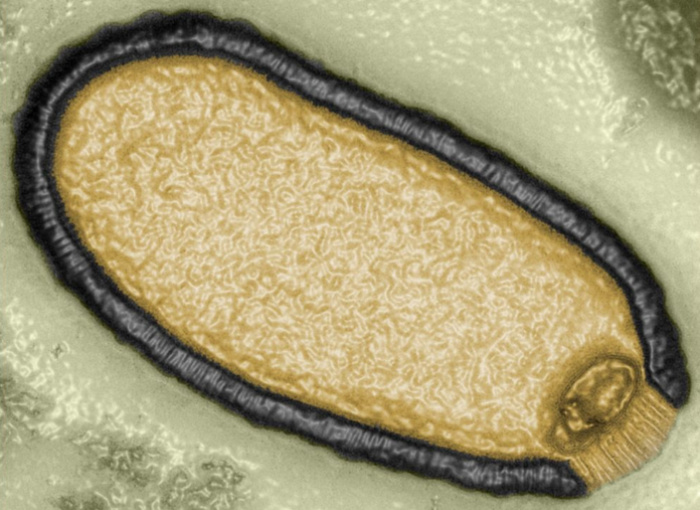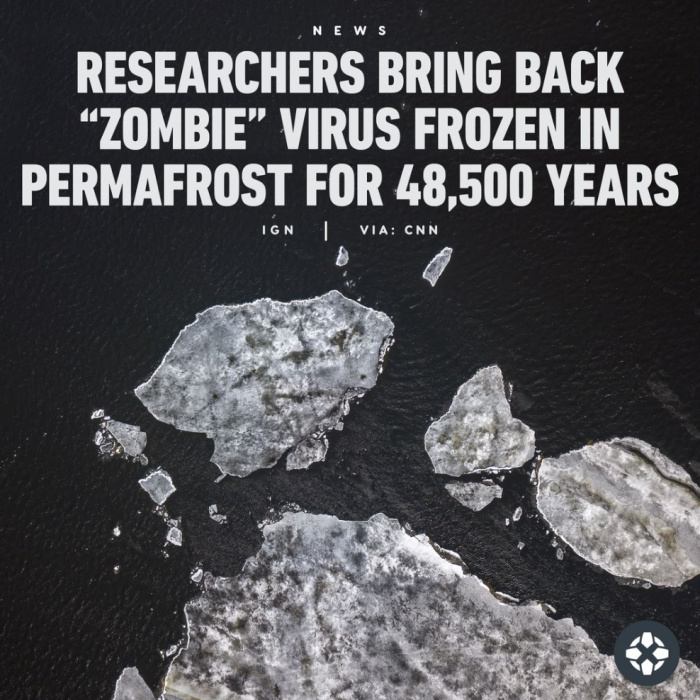Researchers Have Brought Back A 48,500-Year-Old “Zombie Virus” And Does Anyone Else Think This Is A Bad Idea?
This kind of falls into the realm of ideas I think are a horrible idea, but what do I know?!?

Apparently researchers have brought back what they are calling a “zombie virus” that has been frozen for 48,500 years.

I mean, it’s kinda like their genius idea to bring back the woolly mammoth, right?
Just leave that shiz back in the past!

According to Insider, researchers tested this “zombie virus” on amoebae, and they found that “they could still infect living single-celled amoebae.”
Red flag, red flag, red flag.

It is supposedly only a danger to other cells — but, um — we are made of cells.

I’ve seen horror movies. This is how it starts.
This virus was pulled from the permafrost in Siberia — but y’all — the permafrost is melting due to climate change.

Gah!

There’s a lot going on with the permafrost that is of concern, and (it) really shows why it’s super important that we keep as much of the permafrost frozen as possible.
Kimberley Miner, a climate scientist at the NASA Jet Propulsion Laboratory at the California Institute of Technology in Pasadena, California
That means that other viruses that were once thought to be long gone could come back from the dead, so to speak.

We view these amoeba-infecting viruses as surrogates for all other possible viruses that might be in permafrost — We see the traces of many, many, many other viruses. So we know they are there. We don’t know for sure that they are still alive. But our reasoning is that if the amoeba viruses are still alive, there is no reason why the other viruses will not be still alive, and capable of infecting their own hosts.
Jean-Michel Claverie, an Emeritus professor of medicine and genomics at the Aix-Marseille University School of Medicine in Marseille, France
Is anyone else a little jolted by this information?

I, for one, have enough to worry about without getting infected by some zombie virus that hasn’t existed in the population for thousands of years.

What do you think? Should we be concerned?










